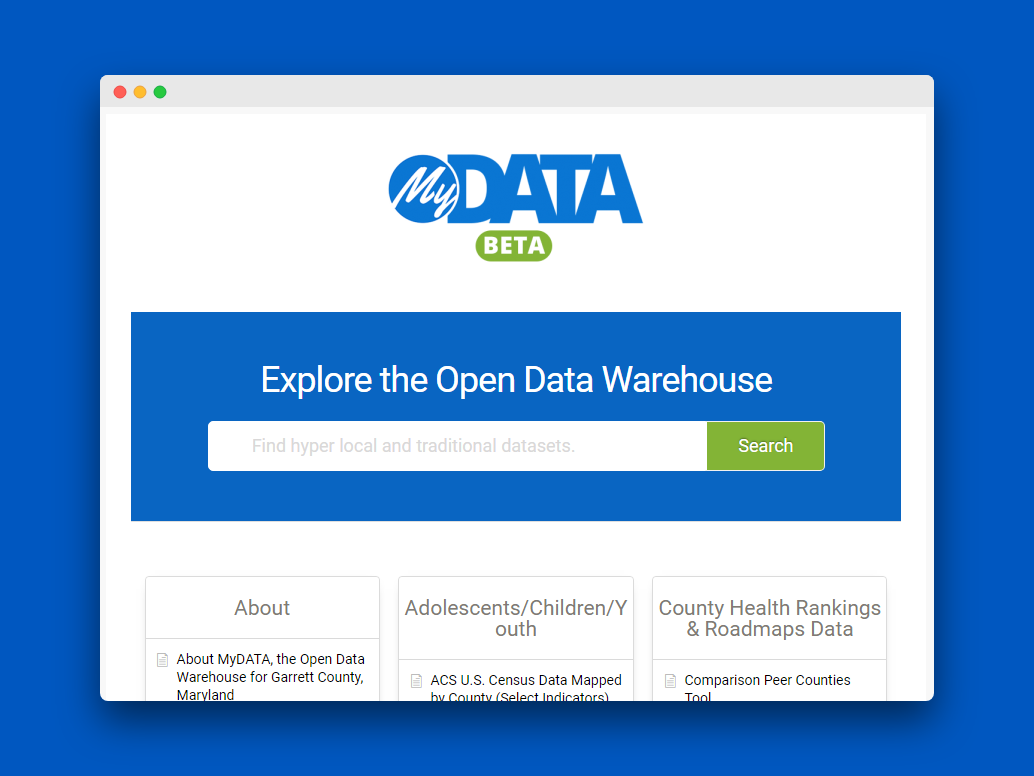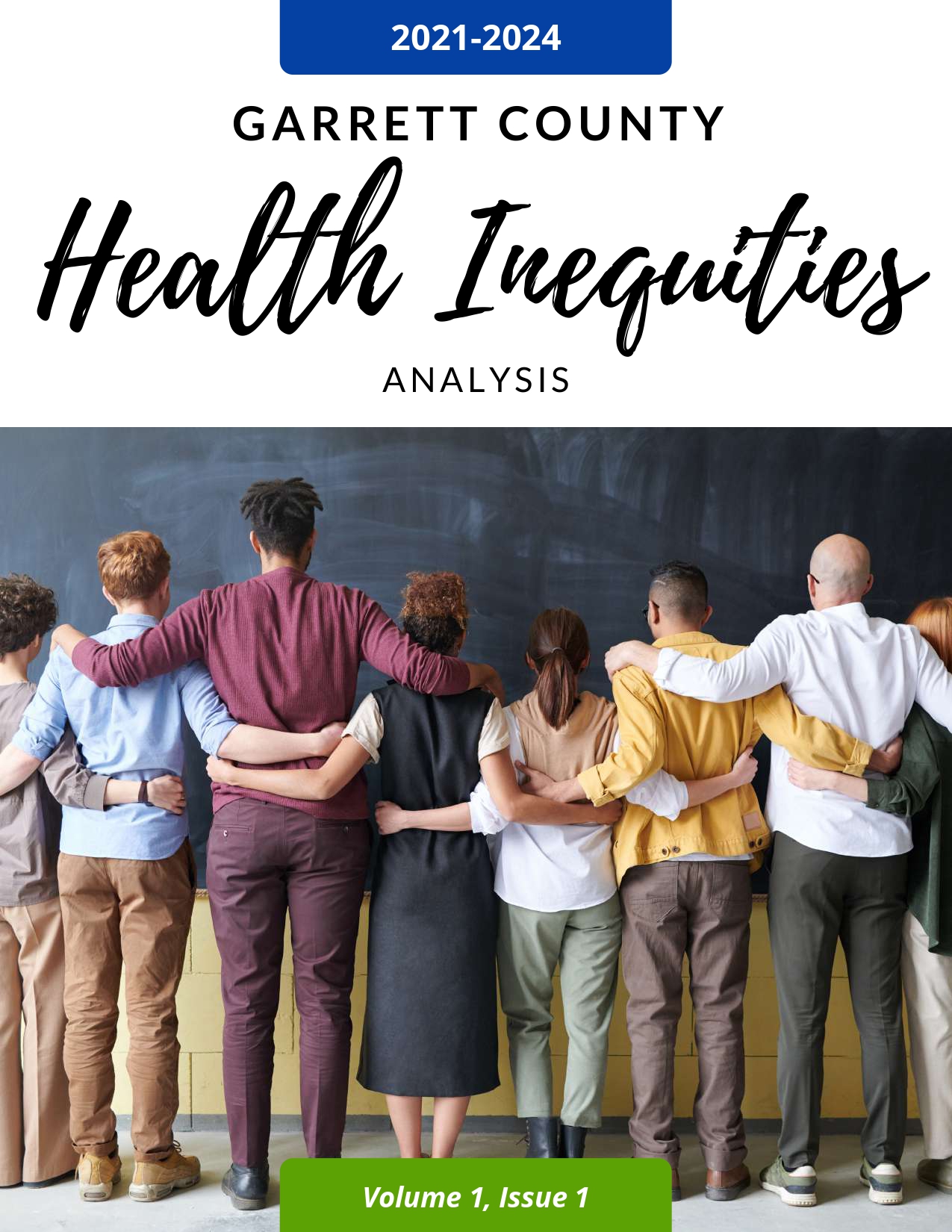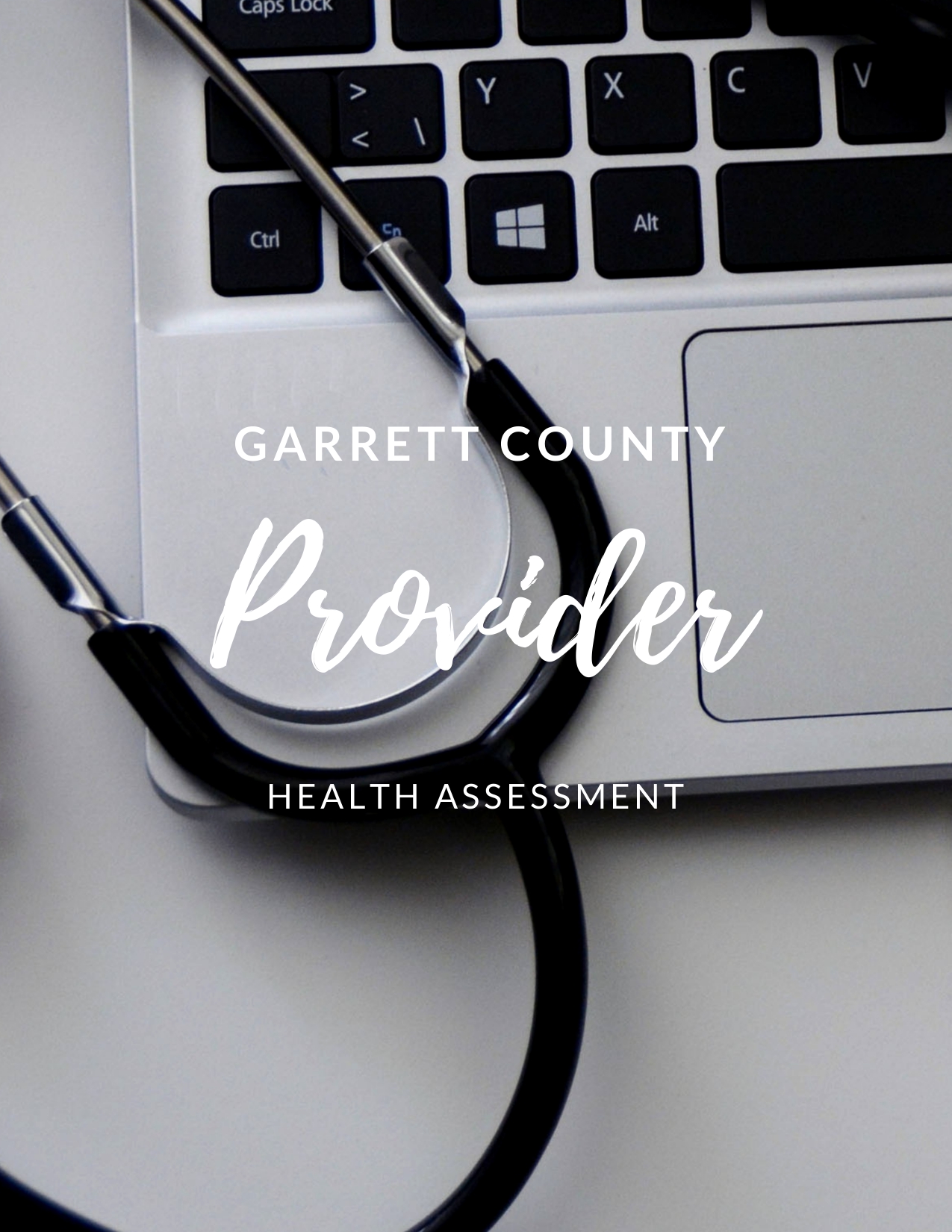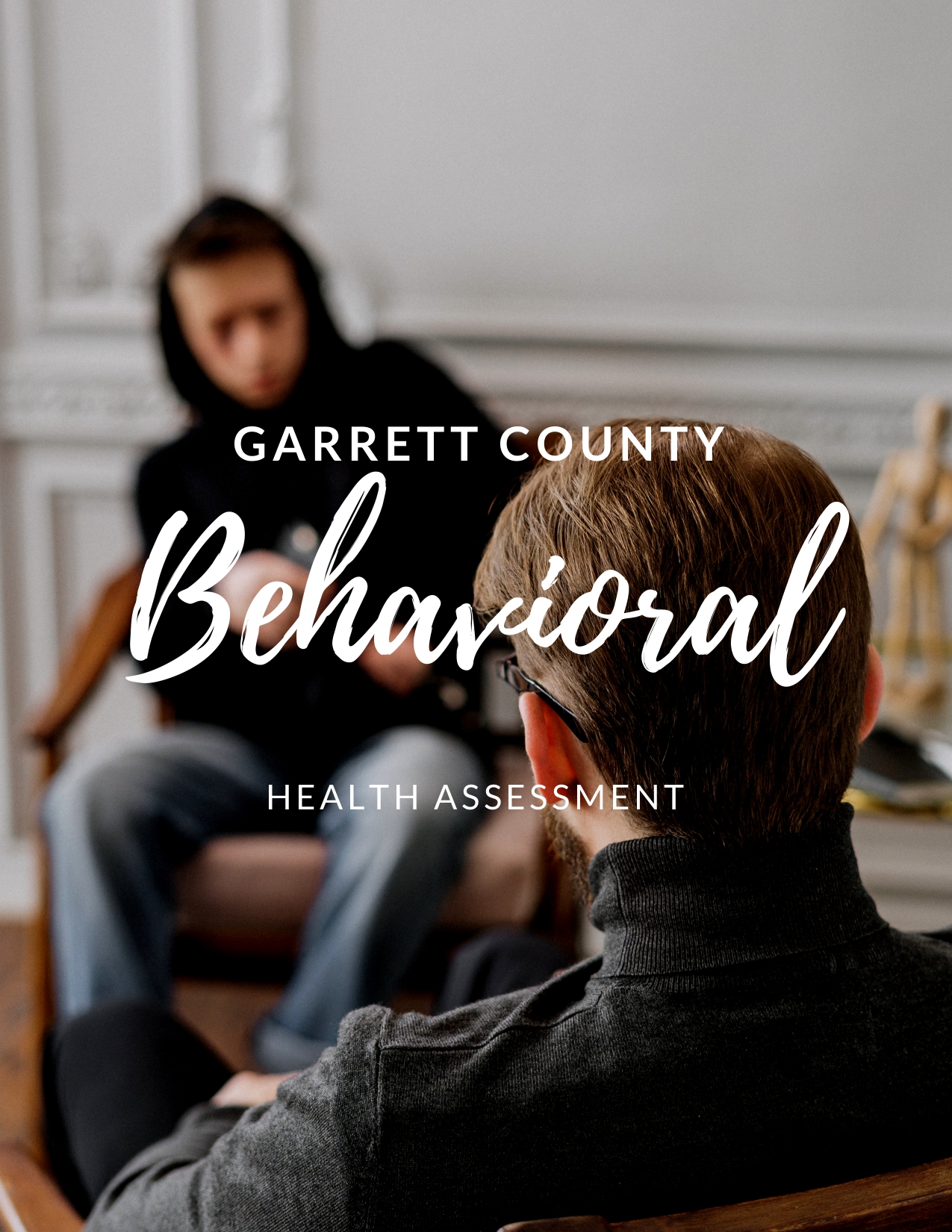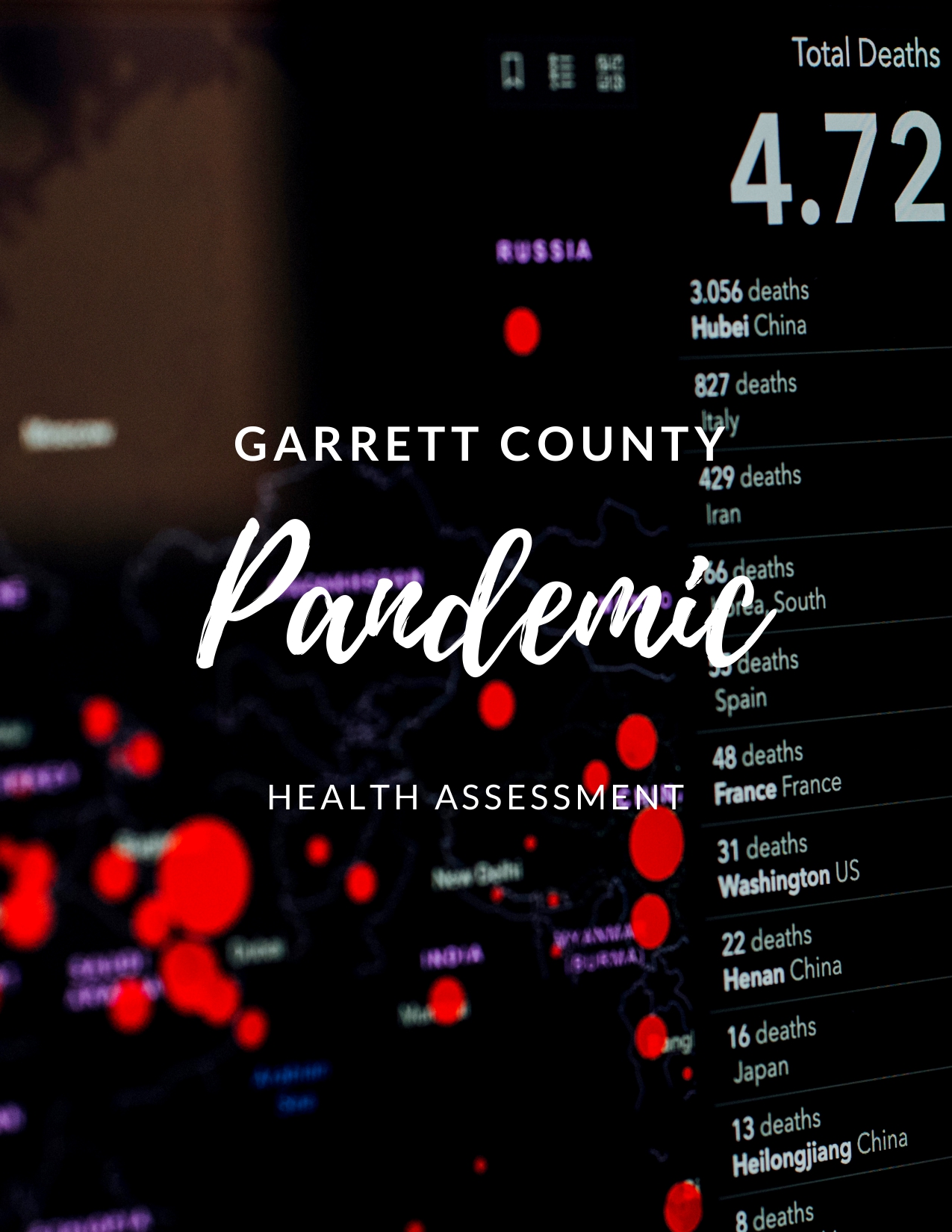Garrett County Community Health Assessment 2022-2024
Assessing Needs, Addressing Equity, Improving Outcomes.
Garrett County has quickly become a national leader in community health planning, assessment, and improvement in just three short years. As we gear up for our third major assessment and improvement cycle, our community agencies and stakeholders are beginning a series of processes to continue our work in making Garrett County, Maryland a healthier place to live, work, and play!
With the addition of mygarrettcounty.com, a living and perpetual community improvement platform, Garrett County is poised to advance public health, improve outcomes, and work together to transcend long-standing issues that impact the quality of life.
In this 2022-2024 iteration of the community health assessment and improvement cycle, the Garrett County Health Department in partnership with the Garrett County Local Management Board, Garrett County Behavioral Health Authority, Garrett County Government, Mountain Laurel Medical Center, and Garrett Regional Medical Center will again be conducting a modular Community Health Assessment.
This assessment will focus on collecting primary data that our community agencies and stakeholders need to inform programming and systems-level changes needed to improve health outcomes. While previous assessments have been entirely comprehensive, this assessment focuses intentionally on collecting, aggregating, and illustrating the most important, missing pieces of data: what you, our community, want us to focus on the most. Further, this data will be supplemented by an exhaustive search of secondary datasets that will help to weave the unique tapestry that is our beautiful, diverse, and caring community.
Each phase of the assessment process will be identified and recorded here, completely transparently, with multiple opportunities to participate in the process and become an ambassador for your local community.
Informing A Data-Driven Process
What Matters Most?
Planning Is Now Mobilized
Thanks to mygarrettcounty.com, our community now transparently collaborates in mobilized, topic-focused teams called action groups. These 170+ action groups highlight the strategies our community is developing across sectors to address the greatest needs in our community, better serve our most vulnerable populations, and streamline processes to improve outcomes by collecting hyper-local data and measuring what truly matters.
100+ Public Open Data Resources Are Now Indexed
This new cycle builds on the wealth of information collected in the previous assessments.
2016 Garrett County Community Health Assessment (https://mygarrettcounty.com/cha/) and the 2019 Garrett County Community Health Assessment (https://mygarrettcounty.com/cha2021/), supplemental, specific community assessments, such as the 2019 Garrett County Behavioral Health Authority and 2019 Mountain Laurel Medical Center community needs assessments, 2021-2024 Health Inequities Analysis (https://mygarrettcounty.com/wp-content/uploads/2022/03/2021-2024-Garrett-County-Health-Inequities-Analysis-1_compressed.pdf) and the rapidly growing Garrett County Open Data Warehouse by intentionally focusing on mapping our needs to better understand how different communities within our county, or zip codes in the case of this cycle’s strategy, identify needs, relate to their communities, and utilize public and private health care resources.
These extensive local, state, and national datasets will inform this work, and be incorporated in mapping tools to be designed as an end-product of this assessment cycle. These tools will be designed to intentionally incorporate both traditional public health data and social determinants of health, such as income and jobs, education, housing, etc…, that are now widely accepted to be the upstream causes of persistent poor health outcomes that are difficult to address within the lens of public health alone.
An example of these applications is shown below. Note, this cycle will ideally include respondents outside of Garrett County, who work, play, or utilize services within our region. If a statistically significant sample of these are collected, we will also make this data available in aggregate as an interactive application.
The extended partnerships in this cycle’s endeavor will help our community collect, tabulate, and illustrate a comprehensive picture that will help our local and state agencies and stakeholders better plan and implement initiatives to improve outcomes in a holistic way that leads to long-term improvements in public health.
A series of ongoing assessments have also been completed since the 2019-2021 Garrett County Community Health Assessment was published. These reports provide additional insights into key issues identified since the last assessment was completed.
Representation Matters
Aligning Our Survey Instrument To Collect The Most Meaningful Data
A Shift Toward Actionable Data Collection
As our local community health assessment and improvement planning processes continue to evolve with an increased focus on collecting the most useful and actionable data, we happily credit the other counties, regions, and cities that have helped shaped our processes:
- Howard County, Maryland Community Health Needs Assessment Model
- Richmond City, Virginia Health District Community Health Assessment Model
- Denver, Colorado Public Health Assessment
Additional Resources
The Survey Instrument
The Garrett County Health Department’s Population Health, Innovation, and Informatics Unit champion county-wide assessment, planning, and health improvement. These processes are reviewed at public Health Planning Council meetings held once a month at the Garrett County Health Department with a variety of stakeholders. Their mission: to ensure a high-quality, effective, and integrated community care system that is responsive to the needs of residents. For those unable to attend, every stakeholder and member of the public is invited to join us digitally for a transparent look at these processes on mygarrettcounty.com.
In addition to the Health Planning Council meetings, local agencies and key stakeholder groups (consisting of staff from the Garrett County Health Department, Garrett County Local Management Board, Garrett County Behavioral Health Authority, Mountain Laurel Medical Center, and Garrett Regional Medical Center) reviewed a sample draft of the survey instrument. In order to ensure that our instrument captures the most valuable information and is equitable in design, this process will be extended this cycle to include a one-week, anonymous public comment window on the Garrett County Health Department’s website at garretthealth.org from March 14 thru March 18, 2022.
Following this period, the group reviews community feedback and makes any revisions to the survey in the interest of furthering health equity practices in Garrett County.
Public Review of the Survey Instrument
We invite members of the public and Garrett County stakeholders to review the Garrett County Community Health Assessment 2022-2024 survey instrument. This serves to ensure equitable practices and gives the community an opportunity to request additional issues/concerns to be addressed in this survey. Please note that we will also conduct focus groups to dive deeper into topics that are identified as priorities in this survey.
All responses are anonymous, and we invite your honest feedback to better inform this process.
Public Review Results
2022-2024 Garrett County Community Health Assessment Data Divisions
- 21520 – Accident
- 21522 – Bittinger
- 21523 – Bloomington
- 21531 – Friendsville
- 21536 – Grantsville
- 21538 – Kitzmiller
- 21541 – McHenry
- 21550 – Oakland
- 21561 – Swanton
Overarching Themes Need Further Analysis
Drilling Down On Identified Needs

